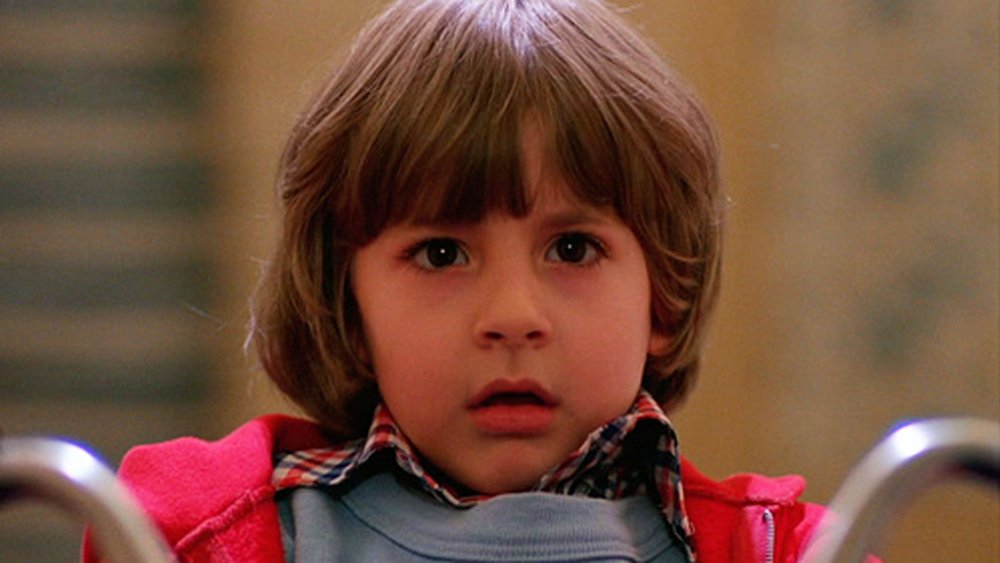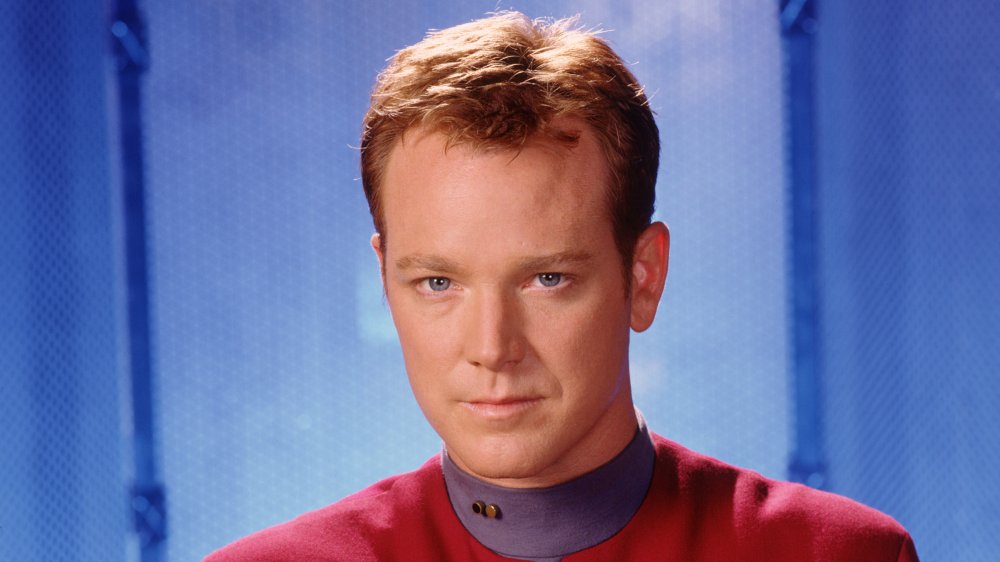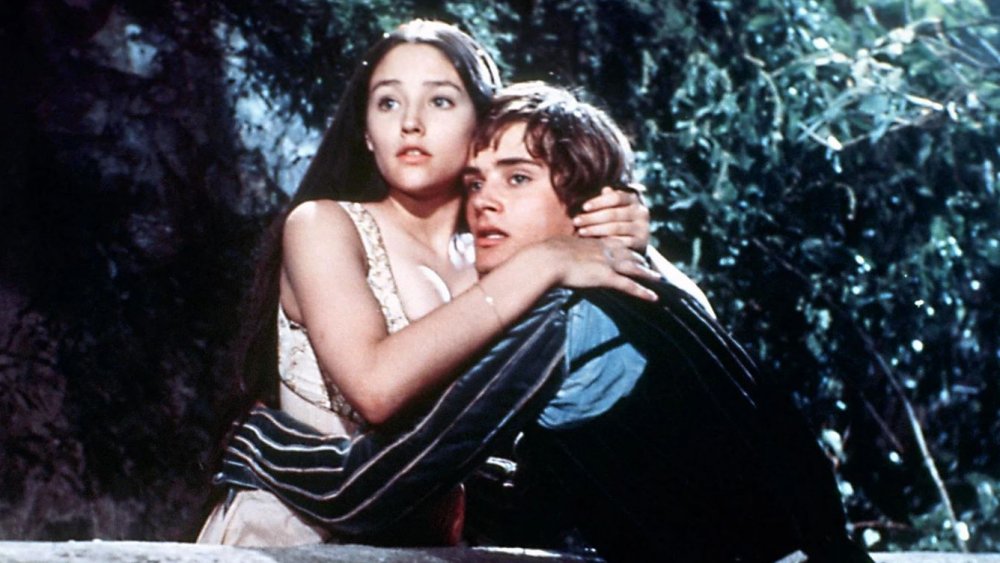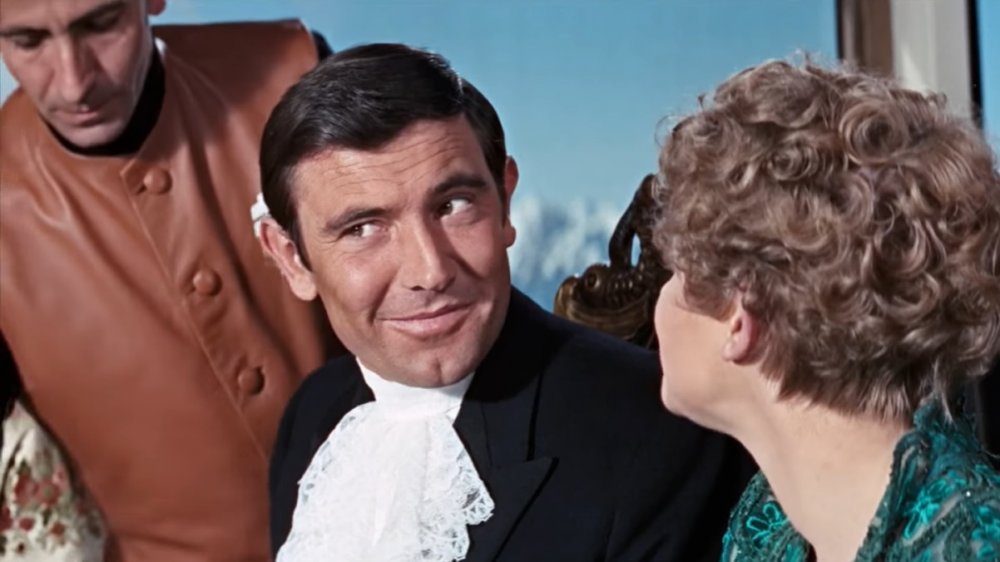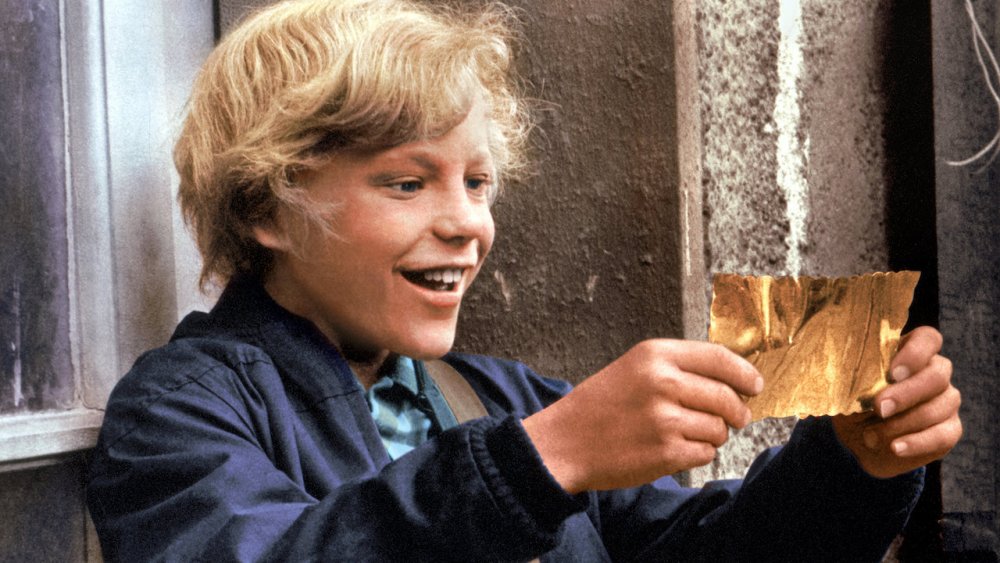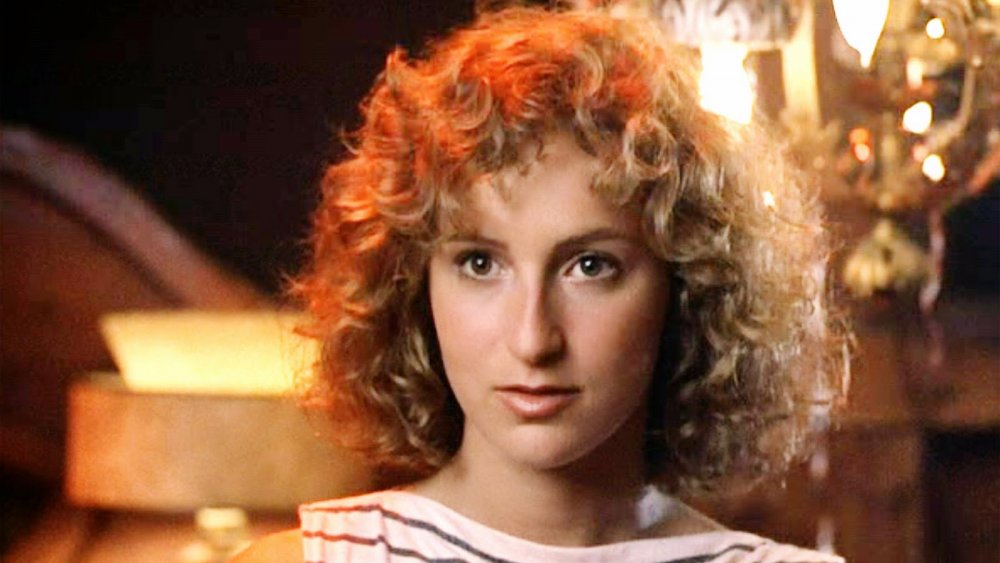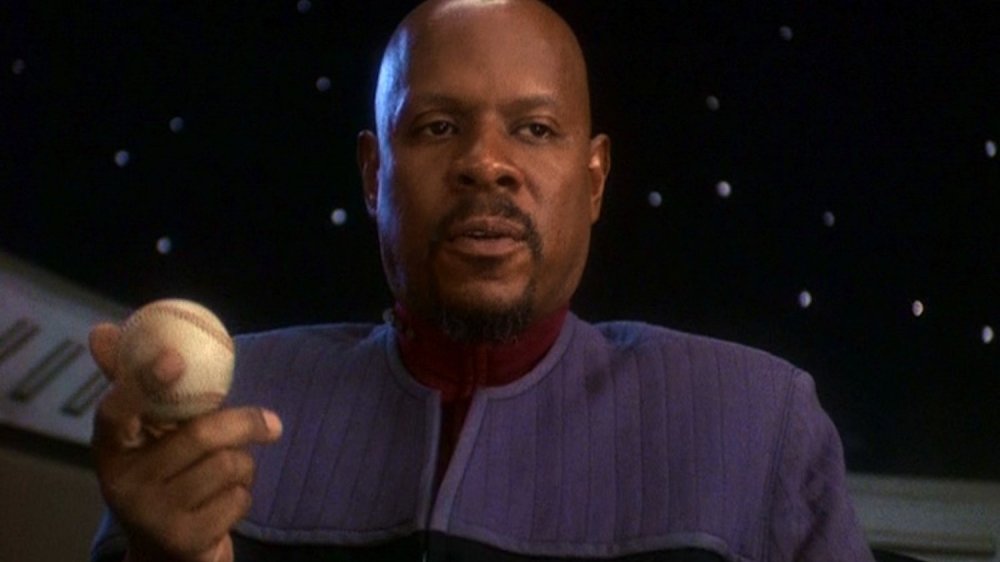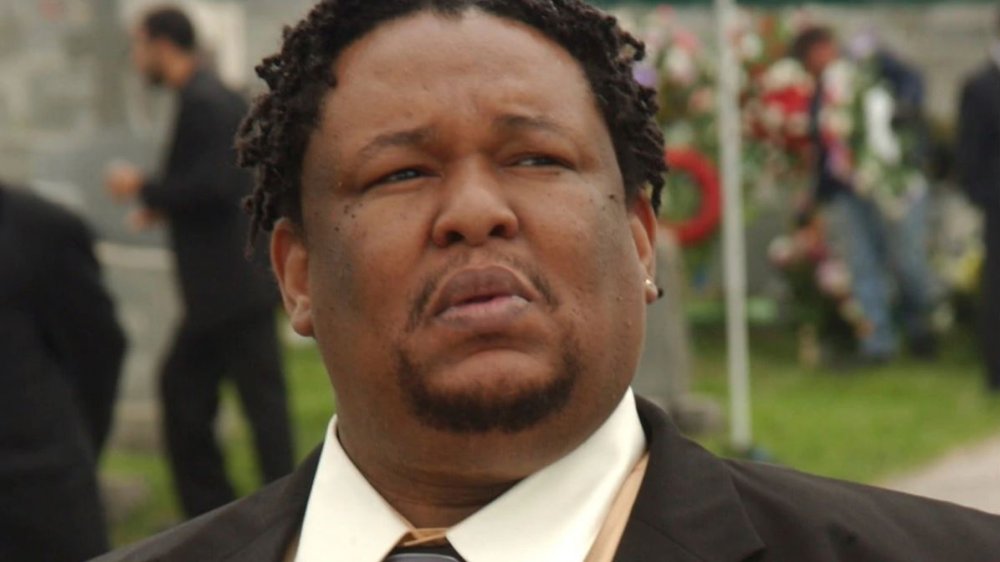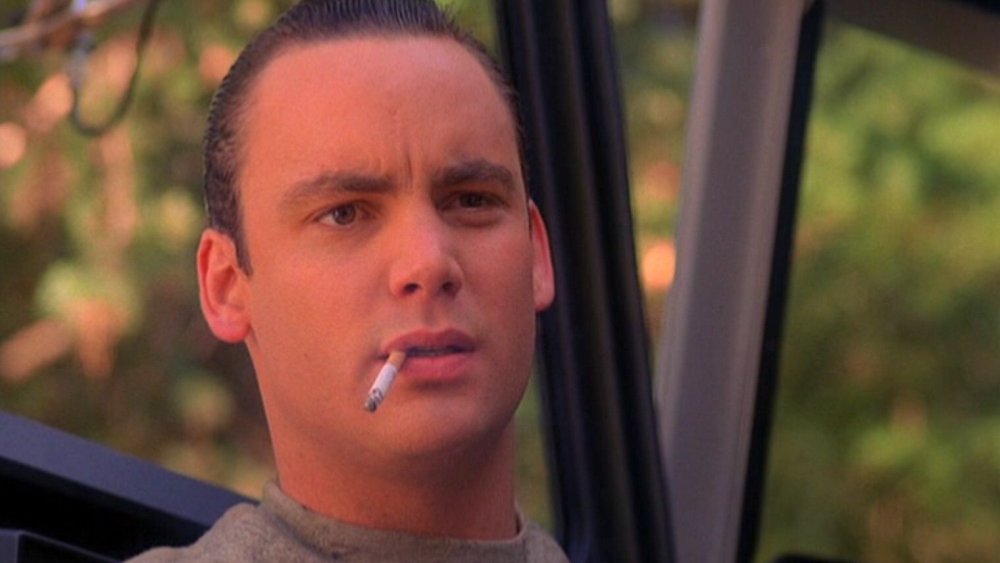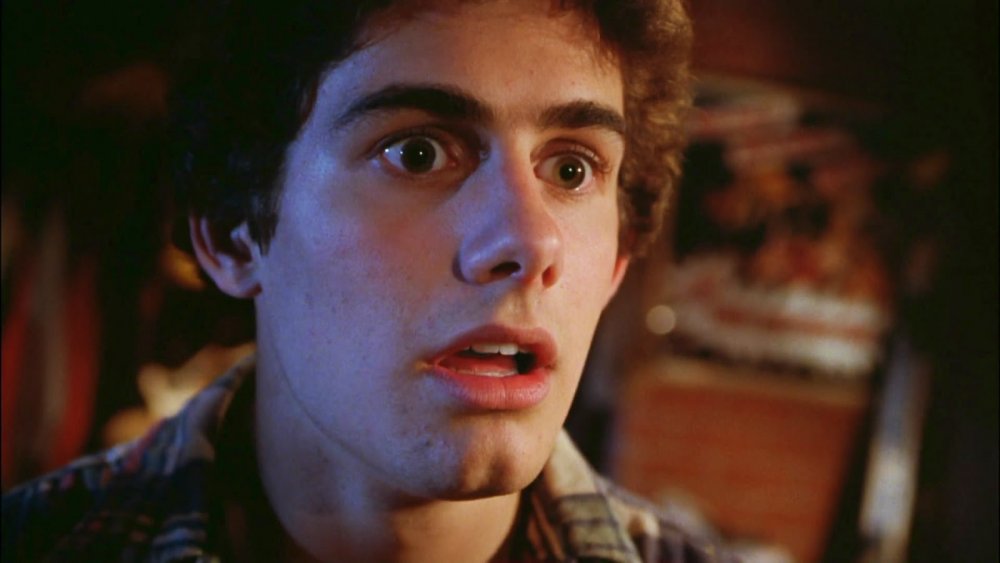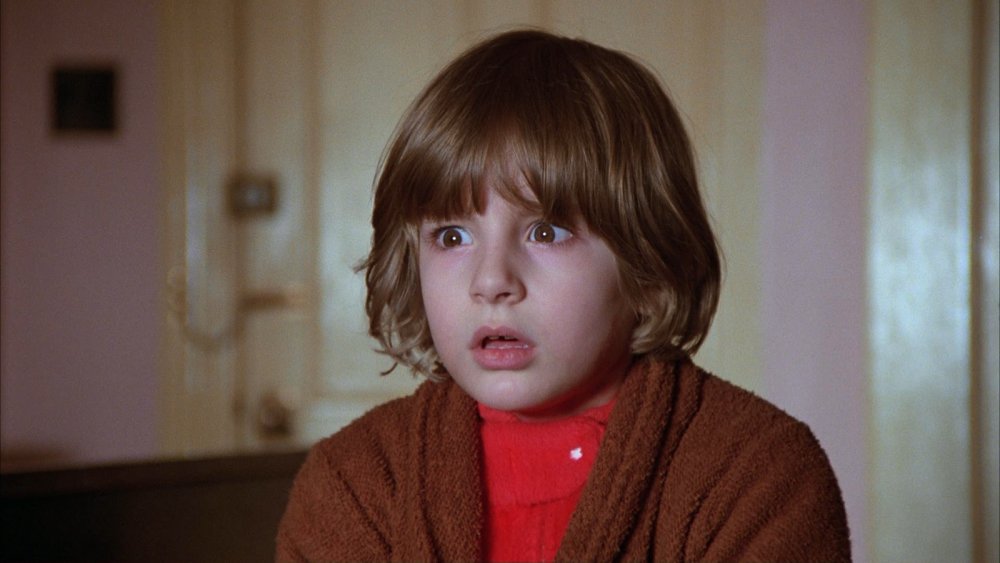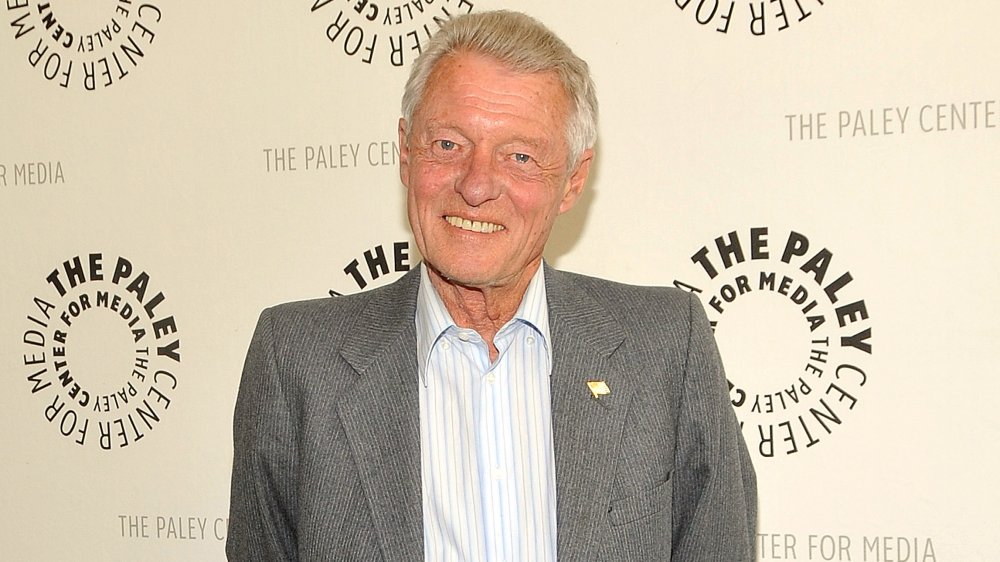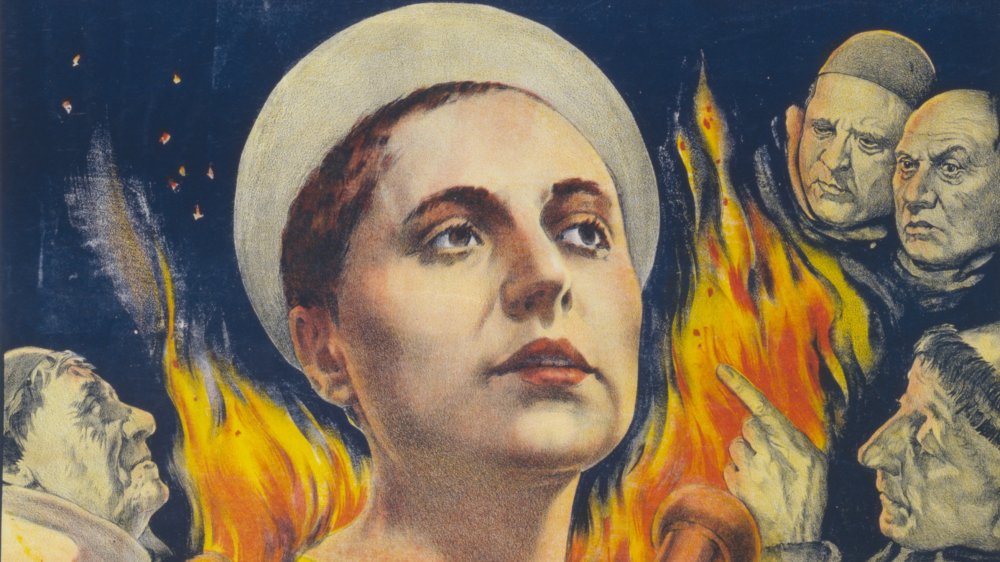Actors Who Disappeared After One Huge Role
Show business is fickle. There's not always a rhyme or reason for why certain actors find fame and fortune while others don't. There are plenty who've made it big without much distinct about them, and there are plenty of talented people who just never made it. Then there's the rarer, more interesting breed in the middle — actors who only had one big role and then disappeared off the face of the Earth.
Some of this is the result of typecasting, especially for younger stars and TV actors. Other times, the role was too big and just loomed over their life too large. Some just wanted to stop being actors and go back to living like a normal human being. And if you're curious what happened to these talented actors after their one huge role, here are a few reasons and theories as to why we haven't seen them in so long.
Robert Duncan McNeill beamed behind the camera after his big Star Trek role
Robert Duncan McNeill owes a lot to Star Trek. One of his first notable roles was as Starfleet cadet Nicholas Locarno on The Next Generation episode "The First Duty." He then became cocky helmsman-of-many-skills Tom Paris on Voyager, the role that would define him. Finally, he'd phase acting out of his life and replace it with directing, a skill he learned over multiple Trek series.
On his first day shooting the Voyager pilot, McNeill approached Star Trek producer Rick Berman and expressed interest in directing an episode as soon as possible. McNeill had long wanted to direct, but the shows he played in kept getting canceled. So instead of waiting around to see what happened, he wanted a chance to direct in Voyager's first season. He spent time shadowing notable Trek directors, including Les Landau and Jonathan Frakes, before getting his first episode, season three's "Sacred Ground." He'd go on to direct three more episodes of Voyager, including cast favorite "Someone to Watch Over Me."
When Voyager ended, McNeill took a few small acting roles but transitioned to full time producer/director. He'd come back to Trek soon afterwards in his new role, directing four episodes of Enterprise. He's since directed episodes of everything from The O.C. to Warehouse 13 to Blue Bloods. He was also a frequent director/producer on Chuck during its entire run. It doesn't sound like he's done with Trek and Trek-adjacent properties, either, as he directed a couple episodes of Seth MacFarlane's Trek pastiche The Orville and has expressed interest in helming a Discovery episode.
Wherefore art thou, Leonard Whiting?
Franco Zeffirelli's 1968 adaptation of Romeo and Juliet was a huge hit at the time and still endures as one of the best Shakespeare adaptations. It was especially notable for casting actual teenagers as the titular characters, with Olivia Hussey as Juliet and Leonard Whiting as Romeo. Both were acclaimed for their roles and were considered future stars. While Hussey went on to have a respectable career, Whiting all but vanished after the movie.
Whiting became a victim of typecasting, playing a few romantic leads in smaller movies before getting jaded with it. He took a break from acting and tried his hand at writing, penning a series of books and plays that never got published. He lived off of film residuals and the odd voice acting gig or art picture. Interestingly, Whiting and Hussey reunited on screen in Social Suicide in 2015, something of a social media-age retelling of Romeo and Juliet.
George Lazenby disappeared from Hollywood after playing James Bond
Though concerns about typecasting are common refrains, almost every actor who's played James Bond already had or went on to have a solid career. But the keyword here is "almost." George Lazenby is the exception. The Australian played Bond in On Her Majesty's Secret Service, only to outright vanish from Hollywood after the movie hit theaters. But believe it or not, he regrets nothing.
Lazenby, a model by trade with no acting experience, bluffed his way through the audition to get the part. However, he spent much of his time clashing with Bond producer Cubby Broccoli, which soured his experience. Despite this, Lazenby was offered a million-dollar contract for six more movies. His agent convinced him not to take it for two reasons. First, he believed that spy characters like Bond were on the way out in the "make love, not war" late '60s. Second, he believed it wouldn't be hard for Lazenby to find more million-dollar roles.
Lazenby announced that he was stepping down from the part before On Her Majesty's Secret Service even premiered. He went on to act in minor roles across the world, but he never got that big contract nor another big character. He's fine with it, all things considered. Years later, he admitted he saw acting as a challenge he conquered. "I'm glad I didn't do another Bond," he said to USA Today, "because I would've been totally trapped in the film industry, and I wouldn't have had the life I had. I wouldn't have had the kids I had. I'm quite satisfied with the way my life has turned out so far."
Peter Ostrum didn't cash in that golden ticket
While you might not recognize the name "Peter Ostrum," you definitely know his character. He played Charlie Bucket, the boy every other child has wanted to be since 1971. The beating heart of Willy Wonka & the Chocolate Factory, Ostrum played the role with so much curiosity and joie de vivre that we're still talking about it today. But Ostrum never took that golden ticket to stardom. Instead, he disappeared for a while, which is how he wanted it.
After Willy Wonka, Ostrum was offered a three-picture deal. He turned it down, and he eventually left acting behind. His interests now lay elsewhere. Inspired by a veterinarian who took care of his family's horse, Ostrum decided to become a vet himself. He got his degree from Cornell University College of Veterinary Medicine, and he works as a large animal vet in upstate New York to this day.
Ostrum was reluctant to talk about his role in the movie for years. A private person, he didn't even tell his future wife that he was in the movie until she was about to meet his parents. However, his relationship with the film slowly warmed, and around 1990, he started going to a local school one day a year to answer questions from kids. He opened up publicly about the role in 2005, when Tim Burton's version was released. Ostrum has since taken part in several Willy Wonka-related promos and screenings of the movie.
Jennifer Grey's career was put in the corner
Jennifer Grey had a small but memorable role as Jeanie Bueller in Ferris Bueller's Day Off — yes, that's her making out with Charlie Sheen — before starring in her big role as Frances "Baby" Houseman in Dirty Dancing. The role got her fame, acclaim, and a Golden Globe nomination. The iconic lift alone is better than any award.
Of course, it's impossible to talk about Grey's rise without talking about the overnight fall. While co-star Patrick Swayze's star only grew, Grey hit a wall, in part of her own doing. In 1990, Grey got a nose job to remove a visible bump. Besides being a low quality nose job, it drastically changed her appearance, and without that distinctive feature, her roles dried up. She's called it "the nose job from hell" and once said, "I went into the operating room a celebrity and came out anonymous."
Grey's gotten plenty of work in the ensuing years, including a recurring role as herself in late '90s sitcom It's Like, You Know..., but she's yet to get another big role. She's still grateful for her part in Dirty Dancing and the joy it brings people, but that doesn't mean it's not repetitive. "I mean," she jokes, "I wish anytime I went into a nice restaurant and asked for a table they said, 'Well, I'm sure you don't want one in the corner.'"
Avery Brooks stepped away from the screen after his big Star Trek role
Benjamin Sisko — we all know him as the man who commanded Deep Space Nine ... and started the Dominion War. Avery Brooks played Sisko for seven seasons, going from the commander of a backwater post to a man on par with any admiral in Starfleet.
Though it was never quite the ratings hit either The Next Generation or Voyager were, Deep Space Nine is now regarded as one of the best Star Trek series. Sisko was unique among Star Trek leads. Besides being the only black lead character until Discovery, he was more emotional, morally flexible, and a more obvious misfit than the average Starfleet officer.
Brooks himself stands in stark contrast to fellow Trek captains/commanders. While most are active on TV and film to this day, he stepped away from the limelight. He took some time to raise his daughters and became a professor at Rutgers University. He's taken smaller movie roles, but he primarily performs in theater. He never got a big public role again, but he doesn't seem to want one. On top of all that, Brooks doesn't give many interviews, not even taking part in a documentary about Deep Space Nine, but he seems happy with where his life is now.
Robert F. Chew stuck around Baltimore after The Wire
Proposition Joe, played by Robert F. Chew, was a stark contrast to the other drug lords in The Wire. He was far more relaxed, verbose, and manipulative. He was also one of the show's more sympathetic characters, despite ostensibly being one of the bad guys. He's one of just a handful of street-level characters who appeared in all five seasons. Yet after the show, Chew only had two minor movie parts and disappeared from public view, entirely by his own choice.
Chew lived his entire life in Baltimore. He was born there, grew up there, went to college there, and died there. He was a fixture of the Baltimore theater scene for a few decades and did some TV work, including a small part of David Simon's previous shows Homicide: Life On The Street and The Corner. During his time on The Wire, he taught acting at the Arena Players Youth Theatre. In fact, he got 22 of his students roles on the show, and he coached many of the series' new and inexperienced actors, including Felicia "Snoop" Pearson and the teens at the center of season four's school storyline.
After the show concluded, Chew could've moved to New York or Los Angeles and found even greater success as an actor. Instead, he stayed in Baltimore and continued to teach acting. The city was too important to him, and he stayed there and helped people hone their craft until his death in January 2013.
Eric Da Re disappeared after showing up in Twin Peaks
Eric Da Re played Leo Johnson, the first true villain of Twin Peaks. The abusive husband of Shelly and the most obvious suspect of Laura Palmer's murder, Leo terrified the town and had every member of the audience waiting for his comeuppance. A man so menacing that he's terrifying even wearing a party hat, Da Re could've had a long career in show business after Twin Peaks. Instead, he vanished ... and there's not even much documentation as to why he stopped acting or where he went.
Da Re was born into a showbiz family. His father, Aldo Ray, was Hollywood's go-to "tough guy" actor for decades. His mother, Johanna Ray, is a notable casting director who's worked extensively with David Lynch. This helped him get a role in Twin Peaks, which he'd briefly reprise in the cinematic prequel Fire Walk With Me.
After Twin Peaks was canceled, Da Re spent years playing smaller roles in obscure movies before outright vanishing from Hollywood in 2002. He hasn't made a movie since, wasn't part of Twin Peaks: The Return, and only makes rare-beyond-rare appearances at cons. However, he resurfaced in 2012 when he was briefly and incorrectly suspected of starting fires in Los Angeles before disappearing again.
Zach Galligan didn't have much of an acting career after Gremlins
Zach Galligan burst onto the scene as Billy Peltzer in Gremlins. The good-natured caretaker of Gizmo and a reluctant hero, the role of Billy highlighted a young actor with a lot of potential. But despite the massive success of Gremlins, Galligan did little of note afterwards.
After Steven Spielberg saw that Galligan already had an obvious crush on Gremlins actress Phoebe Cates in real life, Galligan got cast in the role. He knew early on that Spielberg's involvement alone meant the movie would be a hit, a safe assumption today but especially then. Within three weeks of release, he was recognized worldwide — everywhere from his local restaurants to Johannesburg, South Africa.
After Gremlins, Galligan attended Columbia University. He focused on getting his degree for a stable career but did send in an audition tape for Back to the Future's Marty McFly. He moved back to Los Angeles hoping to restart his acting career, but those four years away sapped his momentum entirely. He narrowly missed getting cast in St. Elmo's Fire, The Rocketeer, and Platoon.
Galligan reprised his role in Gremlins 2: The New Batch, which bombed but has since become a cult classic. He's spent the last decade or so splitting time between writing, acting, and teaching acting, but he never quite found that next big role. Still, Galligan acknowledges that not diving headfirst into show business may have been for the best. He watched two of his best friends — Corey Feldman and River Phoenix — go through in Hollywood, and he sees a world where he would've become a household name before dying young.
Dan Lloyd decided not to play in movies forever and ever and ever
Dan Lloyd played Danny Torrance in The Shining, but he never found the role all that scary. Sure, we may jump at Danny the character encountering those creepy twins, but Dan the actor played games with the actual twins between takes. Even when he watched the movie years later, he wasn't horrified. Instead, he was reminded of all the fun he had on set. It was his one big role before disappearing from show business, but don't worry — he's doing fine.
Lloyd tried out for a few more roles but had trouble landing parts, so he just left the business before he became an adult. In college, he watched The Shining during a frat party, only to sheepishly reveal that he was the boy in the film. He now teaches biology at a community college in Kentucky, where he learned the hard way not to tell his students lest they disrupt class with "redrum" chants. He doesn't give many interviews about his time on set, but he says he loved it then and he's happy with his life now.
Ken Osmond disappeared after his role in Leave It to Beaver
The late Ken Osmond played one of TV's most iconic characters in Eddie Haskell. The model for all trouble-making sycophants who came after him, Eddie Haskell and his antics were some of the most enduring parts of Leave It To Beaver. The role brought him fame ... so much fame that it impeded his ability to find new roles after the series ended.
Osmond had a wife and a house by 1970, which necessitated actual steady income. This saw him join the Los Angeles Police Department, where he grew a mustache to remain anonymous to the public. He was shot by a suspected car thief in 1980, which triggered a years long court battle that ended with him getting a disability pension and retiring in 1988. Around this time he started acting again, playing grown up Eddie Haskell in the TV movie Still the Beaver and the series The New Leave It to Beaver.
Osmond's disappearance from public life was so stark that two different rumors grew out of it. The first was that he grew up to be rock icon Alice Cooper. By Cooper's telling, this rumor started because he described himself as "a real Eddie Haskell" as a child, but his quote was misprinted. He eventually just started wearing a shirt saying, "No. I'm Not Eddie Haskell." The second, and the one that irked Osmond more, was that he became a porn actor — in many tellings, specifically porn star John Holmes. Osmond had to dispel that rumor, which he called a "pain in my butt for 11 years," by disrobing for LAPD Internal Affairs.
Falconetti didn't have the passion for acting
The Passion of Joan of Arc, which depicts the trial and execution of the titular French heroine, ranks on many lists as one of the greatest films of all time. Of particular note is Renée Jeanne Falconetti — often simply known as Falconetti — and her performance as Joan. Much of the film consists of closeups of her face, and her subtle use of body language is praised to this day. It was one of only two film roles she ever did (and the only one that survived).
Falconetti was an acclaimed comedic stage actress, but director Carl Theodor Dreyer thought she could transcend that. He arranged a screen test after meeting her and realized she could play the role of Joan of Arc exactly as he envisioned. The performances received rave reviews at the time, but she didn't quite get the appeal of cinema and went back to stage acting for the rest of her life. Her greatest performance was almost forgotten by time, as well. It was considered a lost film until a copy was located in the janitor's closet of a Norwegian mental hospital in 1981.
